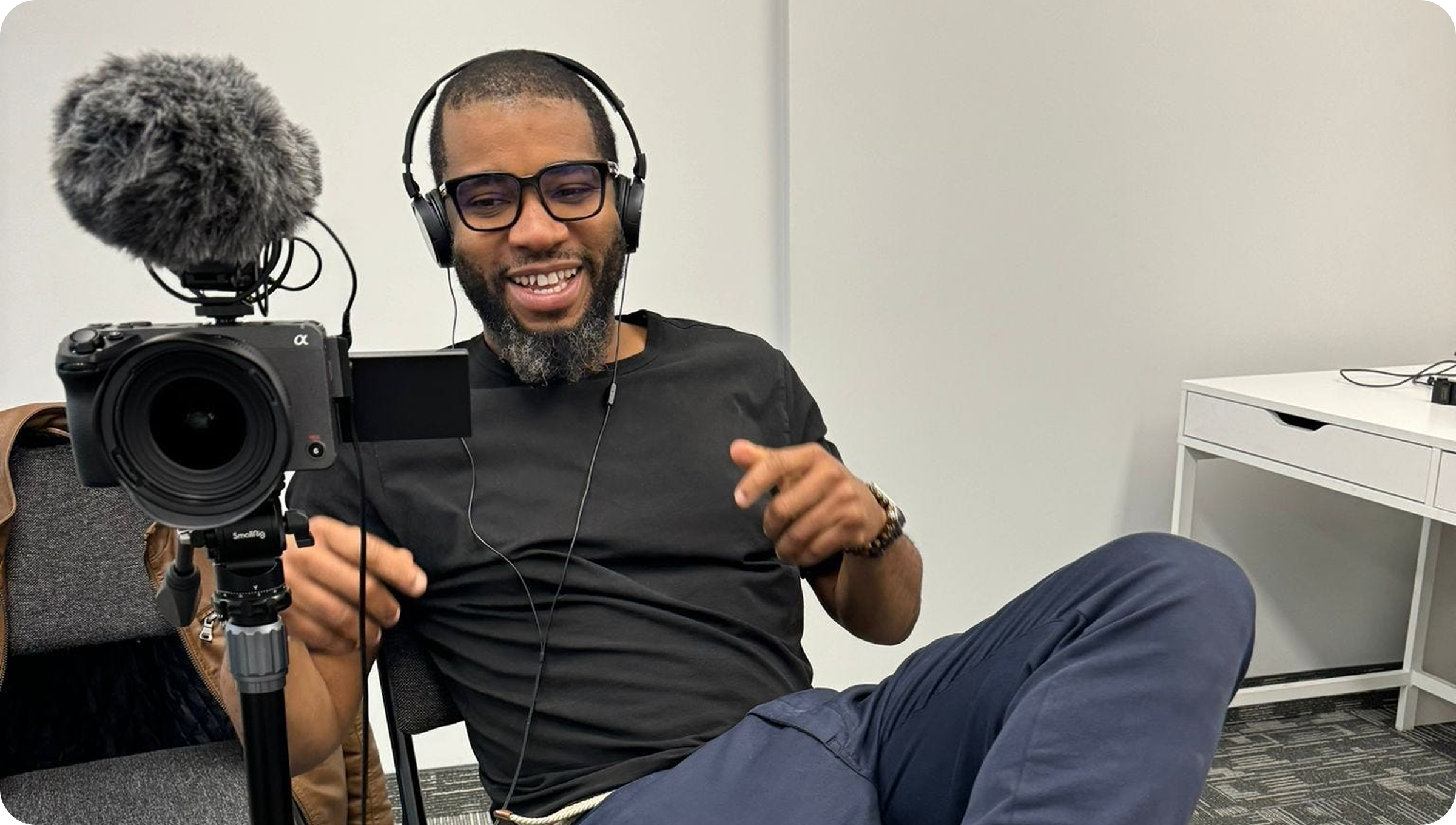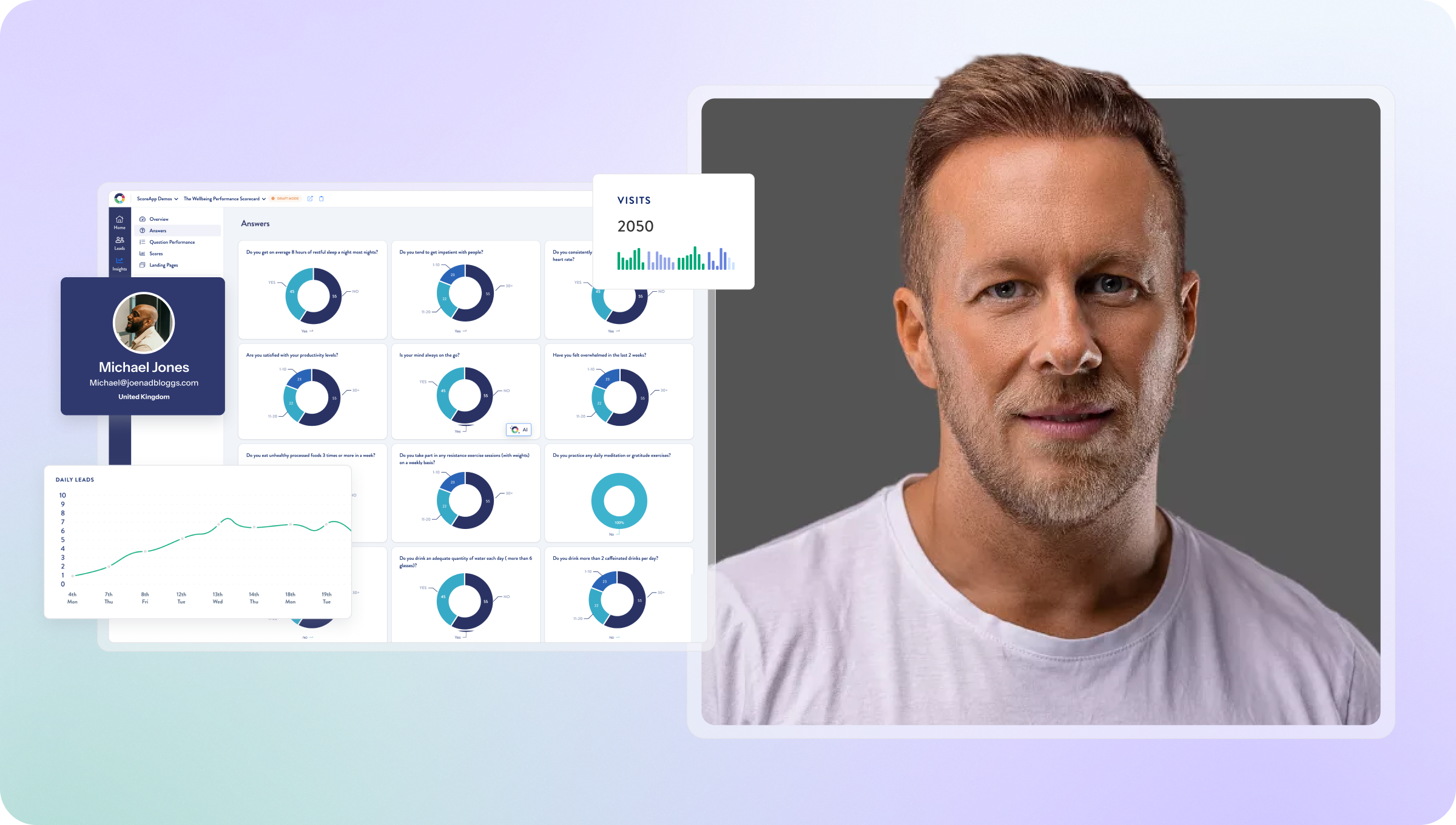5 Buyer Psychology Tips: Find Out What Customers Really Think


One of the fun little facts about us humans is that we absolutely love to talk about ourselves. Of course, there are exceptions, but it is true for the majority of us as a species (Tamir & Mitchell, 2012). Talking about ourselves activates the brain’s reward system, and that’s good news for anyone using a survey as a lead generation tool. Ask the right questions, and your leads will share deeper, more meaningful insights.
That’s where buyer psychology becomes extremely useful. By applying a few of the basic principles of buyer psychology in marketing to your quiz, you can encourage leads to open up to you more. That means a better understanding of who you’re dealing with, stronger relationships, and a stronger basis for personalized marketing.
This article is here to help make it happen, thanks to five buyer psychology tips you can use with ScoreApp. We’ll also be looking at:
- Why people are naturally wired to want to share their personal information with you
- Those five elements of the psychology of sales, and how you can use them to encourage deeper quiz responses
- Using ScoreApp and the psychology of buying to create insight-driven, high-converting quizzes.
Let’s dive in, starting with one of the big questions:
Why do people love talking about themselves?

You know that nice feeling when you get a good meal? Or when you get a bit of money in your pocket? That part of your mind that says you deserve a little treat for all you’ve done that week? Well, that’s the same part of the brain that’s activated when we start answering questions about ourselves. Dopamine, the reward hormone, is released, making us feel good and more likely to engage with the process.
It’s not entirely universal. Different people respond in different ways to different question formats, and not all questions will offer you valuable insights. That’s why ScoreApp quiz templates give you a variety of question types, all with buyer psychology in mind.
Here are five of the principles used in the buyer psychology of purchase decisions, and how ScoreApp uses them to get better insights for your business.
5 buyer psychology principles that encourage deeper quiz responses

1. The self-reference effect: Make questions personal
One of the most effective bits of buyer psychology to apply to your quizzes is the self-reference effect (Rogers et al., 1977). Humans have been shown to process and engage with information more thoroughly when it relates to them. In fact, they’re more likely to give stronger answers to personally relevant questions, even if they’re not aware of it.
The self-reference effect is a powerful tool then, but it’s also easily applied to your ScoreApp quiz. Here’s how:
- The way you ask questions is as important as the question itself. Be sure to frame them in a way that encourages personal reflection. Instead of asking “What is your job role?”—a question with a straightforward, obvious answer—ask “How do you approach challenges at work?”
- Address the lead taking the quiz directly. Using ‘you’ is a simple but effective way of encouraging better engagement. It makes the participant feel involved, and it always pays off when you’re looking for completed quizzes and stronger insights.
2. The foot-in-the-door technique: Start small, then go deeper

You don’t want to overwhelm people with an extensive list of in-depth tasks or questions. If you do that, then you’re just going to turn them away. The majority won’t want to commit the time and mental effort to a big challenge. Your quiz should start off with a small, easy-to-take step, a way to get leads engaged before you get into knottier questions.
This progression from simple to complex is called the foot-in-the-door technique (Freedman & Fraser, 1966), and it’s been shown to increase completion rates and improve the quality of answers. It’s certainly a handy piece of buyer psychology to incorporate into your ScoreApp quiz.
All you need to do is:
- Kick off your quiz with a few simple, low-effort questions. You can start getting deeper and more complex once you’ve eased the lead into the quiz. That also includes the wording. Early questions can have binary answers, while later answers require more thought.
- Keep the lead on side with non-threatening, non-confrontational questions. They have to feel like they’re taking part in a fun process or else they won’t open up and give you the insights you need.
3. The peak-end rule: End with a question that leaves an impression
Ending your quiz on a memorable, meaningful question will leave a lasting impression. It’s been proven that people judge experiences based on how they finished (Kahneman, 1999), as well as the most intense moment of the whole. If you end on a strong question, your participants will leave your quiz feeling more engaged.
It’s called the ‘peak-end rule’, with studies consistently showing that consumers will evaluate an experience based on its most intense peak and its end. As far as using the peak-end rule for the psychology of sales, it’s easier to ensure a strong ending to your quiz than manufacturing a moment of intensity.
Here’s how to stick the landing:
- Avoid a generic question at the end. Instead, make that last question something that invites discussion and thought, that requires reflection or curiosity. You want to leave the lead thinking.
- You’re not done yet, though. End with a tease about the personalized results they’re going to receive as a result of completing the quiz to build anticipation and deepen engagement.
4. The illusion of choice: Give options that guide responses

A bit of a tricky one, this. The illusion of choice is a way of guiding responses—of influencing decision-making—by providing a limited set of curated answers.
The science behind this particular piece of buyer psychology says that people are more confident in responding to questions when they see structured answer choices. A 2019 study showed that these options give respondents a sense of autonomy, even if the choices are designed to actively guide their decision-making process.
To put the illusion of choice into a simpler context, all you need to do is:
- Forgo open-ended questions in favor of multiple-choice answers. But make sure those answers are well thought out and steer respondents toward insights.
- Highlight the important differences between answer options with response framing. For example, if you’re asking “What’s your biggest challenge with social media?”, the choices could be “Struggling with engagement”, “Not sure what to post”, or “Not enough time to manage it.”
- There’s no right or wrong answer, but each one will take the lead in a different direction. A direction for informing personalized marketing efforts.
5. The reciprocity principle: Offer value for honest responses
When we receive something valuable, we’re naturally inclined to want to return the gesture (Cialdini, 2001). Somebody thought of us, so we’ll show our appreciation. It’s the foundation that secular Christmas is based on. But not all valuables have to be gift-wrapped.
When it comes to your quiz, the reciprocity principle says that your leads will be more willing to open up—to share their insights with you—if they know they’re getting something of use at the end.
It’s easy to implement, too.
- Be upfront, and clearly set out the benefits of answering honestly and thoughtfully. Tell the lead their answers will lead to a tailored set of results.
- Make sure those results, or another freebie, are sent instantly with automation to deliver that sense of reward and gratification.
How ScoreApp helps you unlock deeper insights

We’ve given you a lot to think about, introducing five buyer psychology tools to improve the effectiveness of your quizzes. But there’s no need to worry, because ScoreApp makes designing quizzes that leverage these tools a breeze.
With ScoreApp, you can take advantage of:
- Personalized quiz results that make participants feel understood
- Smart question sequencing that starts light and builds deeper
- Automated follow-ups that reinforce engagement and conversion.
All of which helps customers open up when taking your quiz.
Create your quiz with ScoreApp and use the psychology of sales to build engagement, generate better leads, and improve conversions. It’s free to try, so get started today, with ScoreApp.



